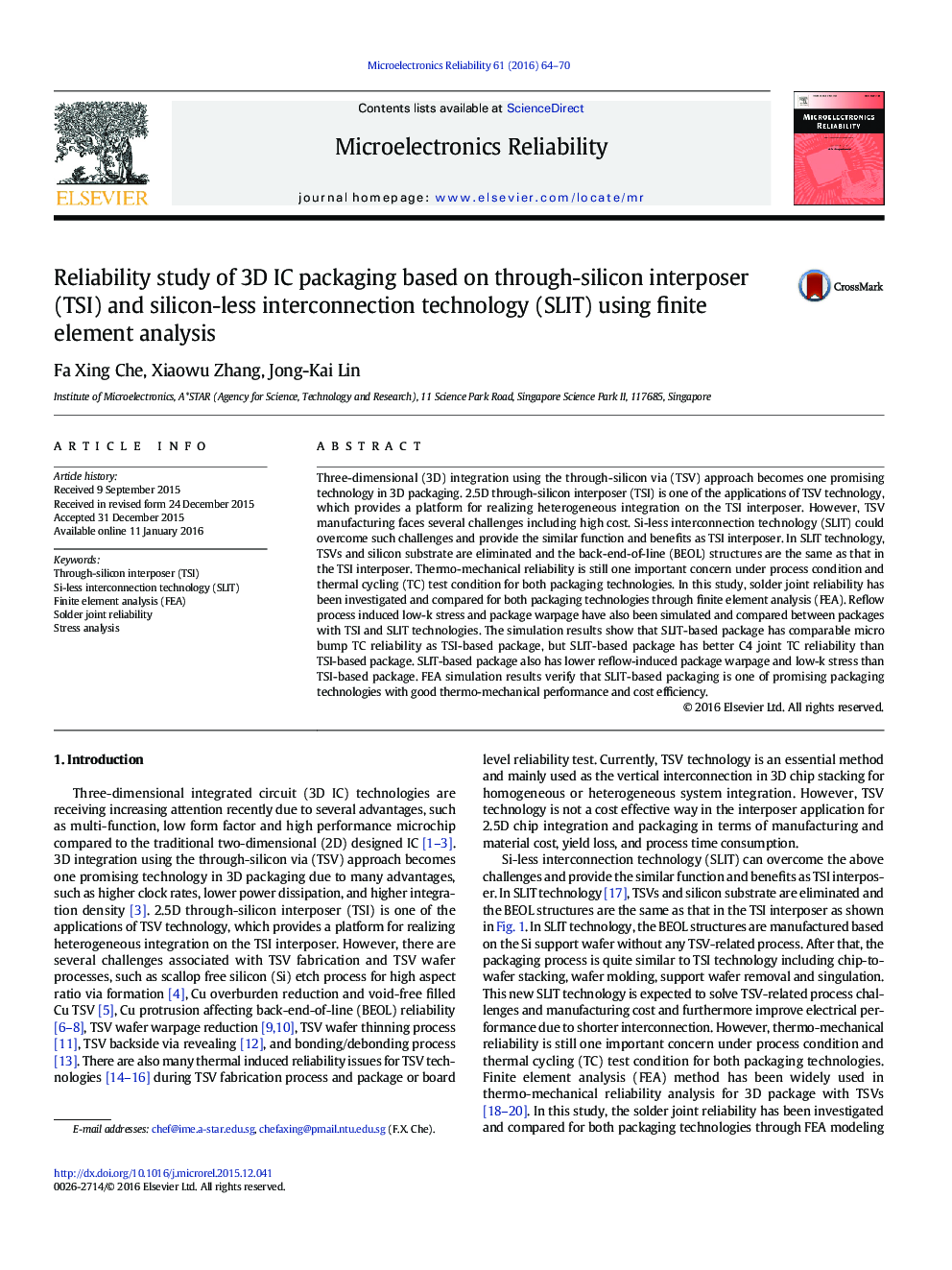| Article ID | Journal | Published Year | Pages | File Type |
|---|---|---|---|---|
| 544612 | Microelectronics Reliability | 2016 | 7 Pages |
•FEA results verify that SLIT technology has a good thermo-mechanical performance.•SLIT-based package has higher C4 solder joint TC life than TSI-based package.•SLIT-based package has lower package warpage and stress than TSI-based package.
Three-dimensional (3D) integration using the through-silicon via (TSV) approach becomes one promising technology in 3D packaging. 2.5D through-silicon interposer (TSI) is one of the applications of TSV technology, which provides a platform for realizing heterogeneous integration on the TSI interposer. However, TSV manufacturing faces several challenges including high cost. Si-less interconnection technology (SLIT) could overcome such challenges and provide the similar function and benefits as TSI interposer. In SLIT technology, TSVs and silicon substrate are eliminated and the back-end-of-line (BEOL) structures are the same as that in the TSI interposer. Thermo-mechanical reliability is still one important concern under process condition and thermal cycling (TC) test condition for both packaging technologies. In this study, solder joint reliability has been investigated and compared for both packaging technologies through finite element analysis (FEA). Reflow process induced low-k stress and package warpage have also been simulated and compared between packages with TSI and SLIT technologies. The simulation results show that SLIT-based package has comparable micro bump TC reliability as TSI-based package, but SLIT-based package has better C4 joint TC reliability than TSI-based package. SLIT-based package also has lower reflow-induced package warpage and low-k stress than TSI-based package. FEA simulation results verify that SLIT-based packaging is one of promising packaging technologies with good thermo-mechanical performance and cost efficiency.
